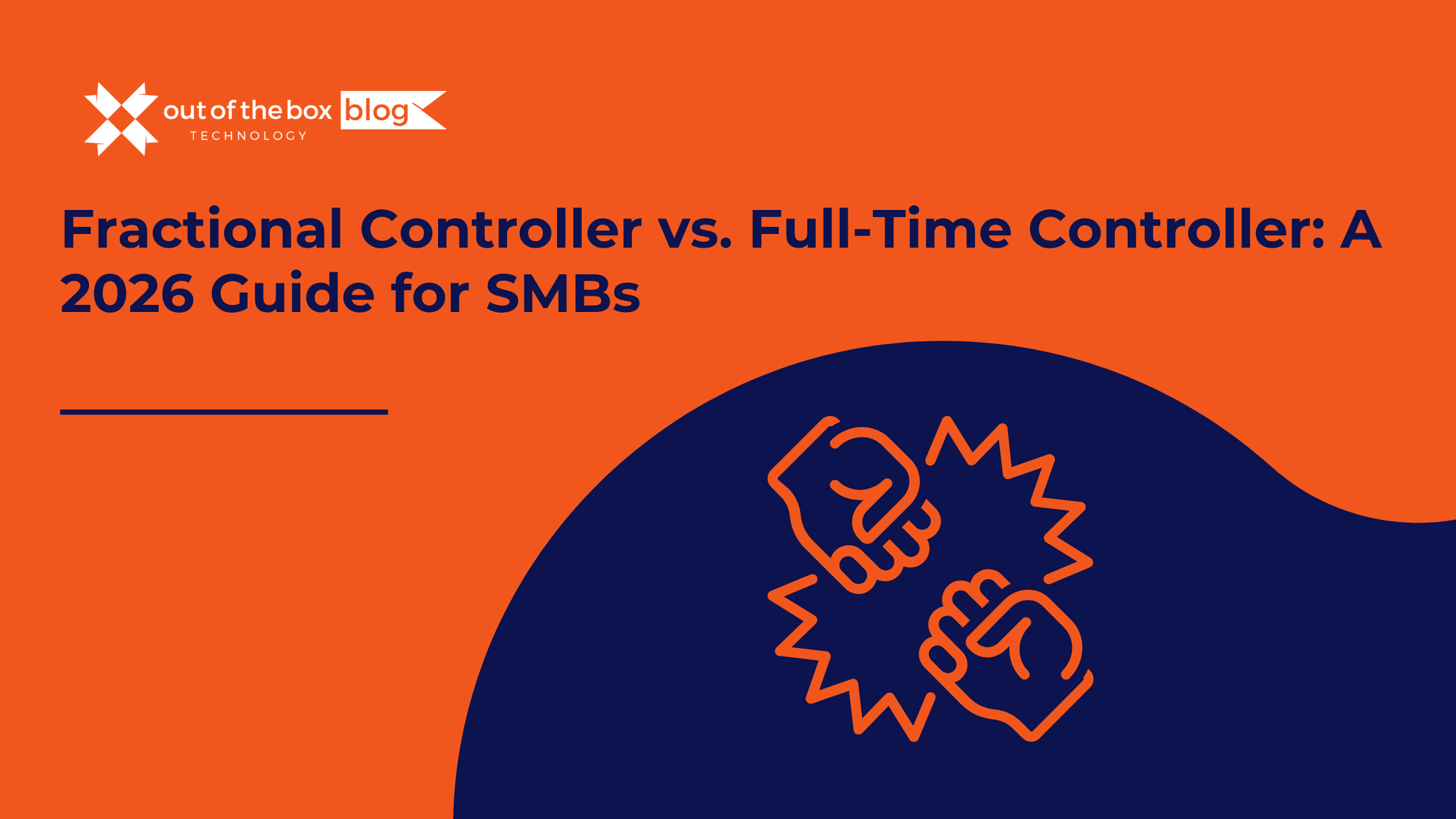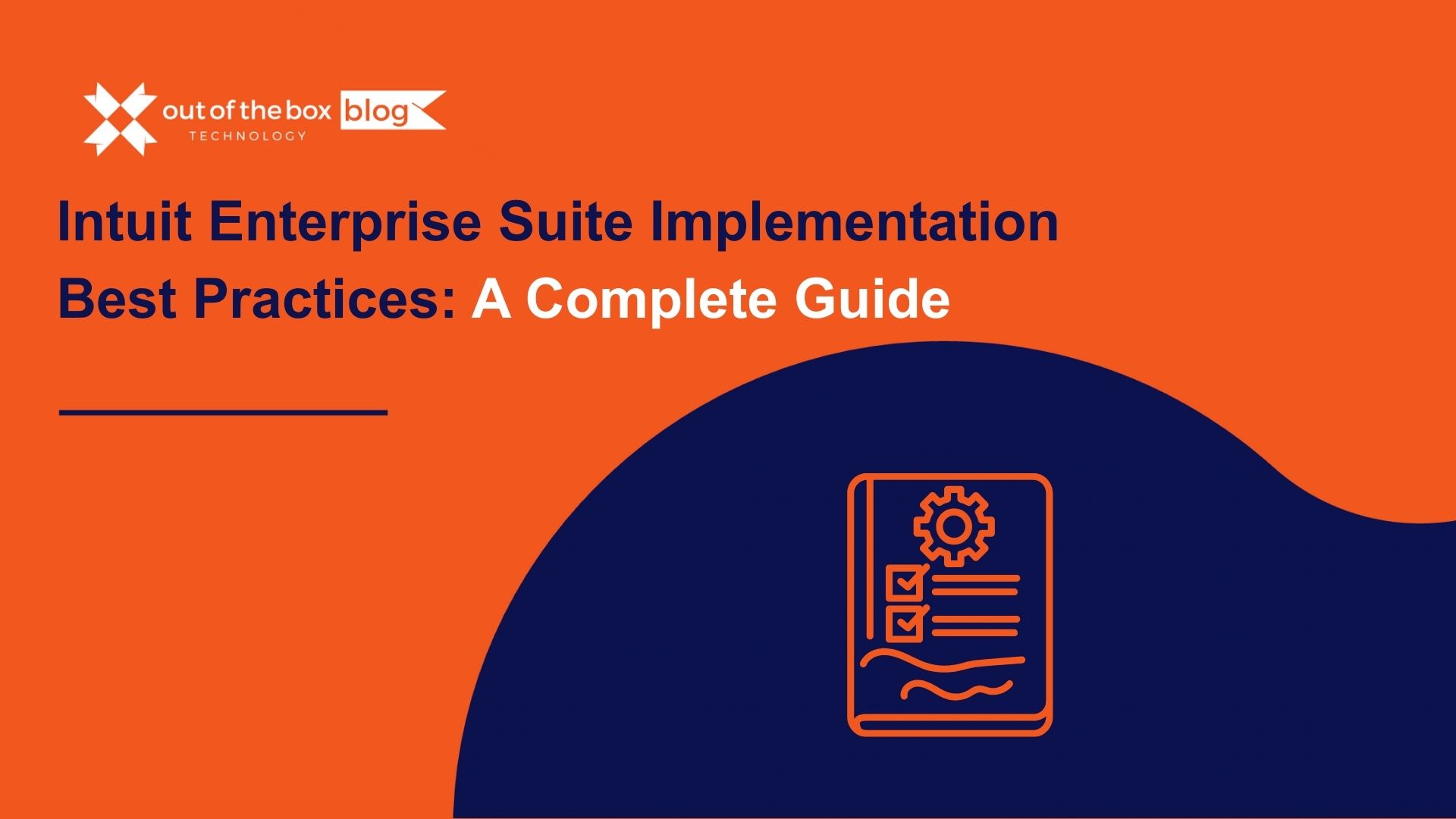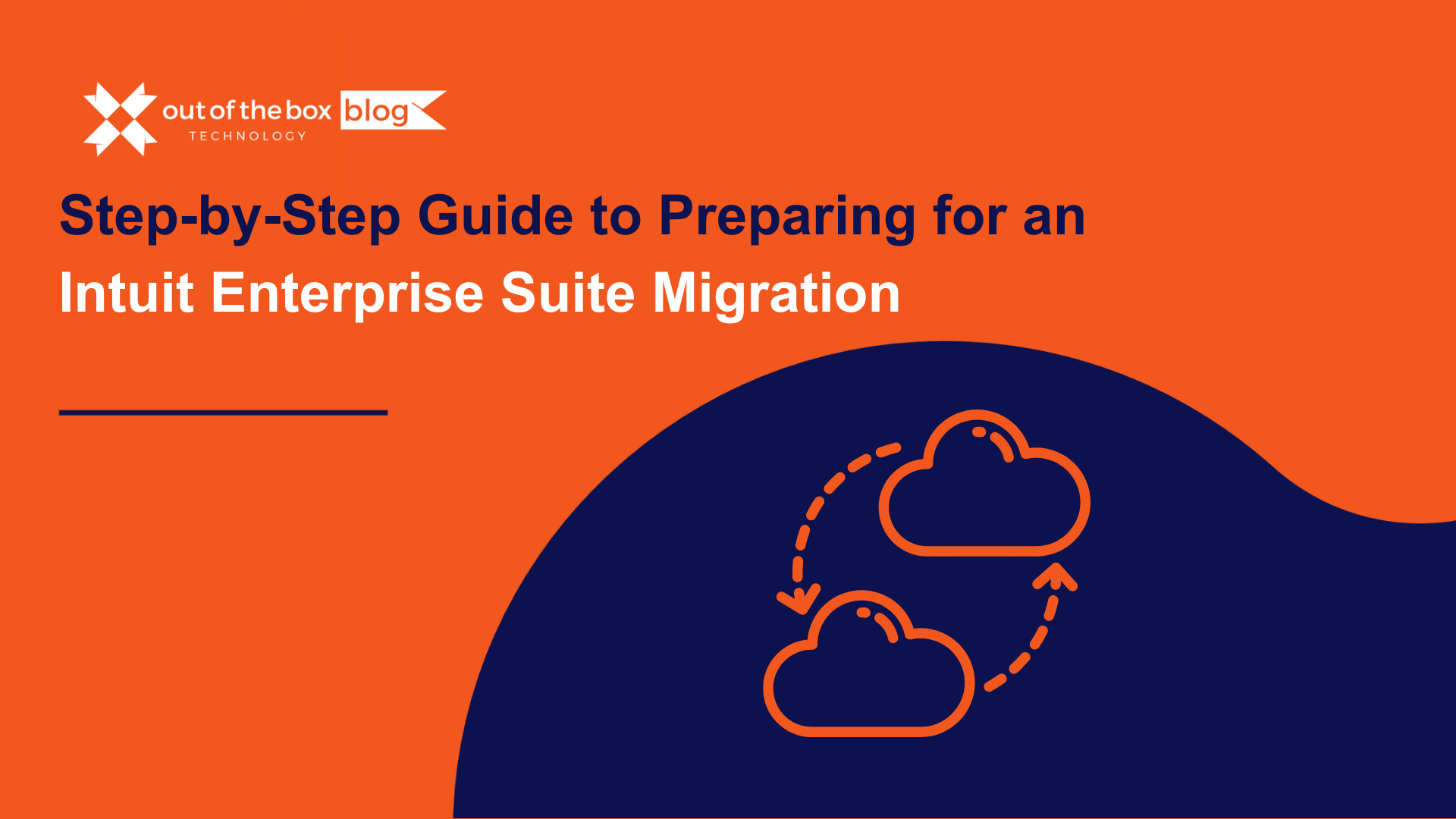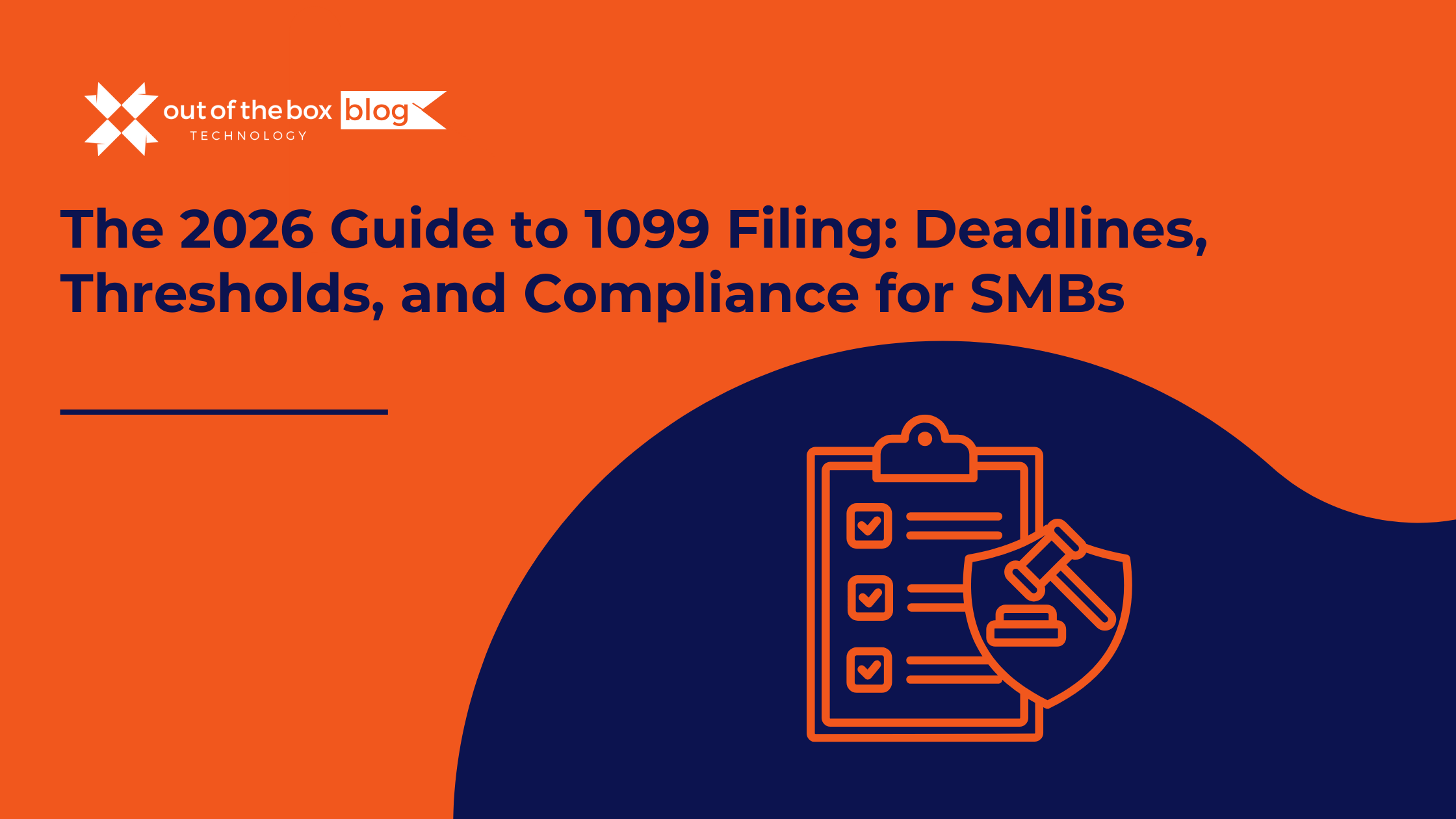Your business has hit an inflection point.
It’s a place of uncomfortable, chaotic success. You’ve grown beyond what your part-time bookkeeper (or worse, your own late-night QuickBooks sessions) can handle. The “financials” you get are a month late, you don’t fully trust them, and you’re making million-dollar decisions by “feel.”
You know you have a problem. You’re flying blind. You know you need someone who can go beyond just recording history and start using the data to build a financial strategy.
You need a Controller.
Then comes the sticker shock. You do a quick search on Glassdoor and see that the average salary for an experienced financial controller can easily top $120,000, $150,000, or more. And that’s before benefits, bonuses, and recruitment.
For many Small and Medium-Sized Businesses (SMBs), this cost feels like a brick wall. It’s the “C-suite” price tag you’re not sure you can afford. This single dilemma stops thousands of businesses from getting the financial oversight they desperately need, trapping them in a cycle of reactive, anxiety-driven management.
But what if you didn’t have to choose between “flying blind” and a $150,000+ hire?
There is a third, more strategic option: the Fractional Controller. This modern, flexible model is arguably one of the most powerful financial advantages an SMB can leverage today.
But which is really right for you? A full-time, in-house employee or a part-time, outsourced expert? This isn’t just a question of cost—it’s a strategic choice about scalability, expertise, and risk.
Let’s break down the true costs, benefits, and the exact decision framework you need.
First, What Does a Controller Actually Do?
This is the most critical concept to understand. A Controller is not just an experienced bookkeeper. This is the biggest (and most costly) misunderstanding in small business finance.
Let’s clarify the financial hierarchy:
- Bookkeeper (The “Historian”): They look to the past. Their job is to accurately record daily financial transactions: managing bills (AP), sending invoices (AR), processing payroll, and reconciling bank accounts. They build the data.
- Controller (The “Inspector”): They manage the present. Their job is to ensure the bookkeeper’s data is 100% accurate and compliant. They verify, analyze, and report on the data.
- CFO (The “Strategist”): They look to the future. They use the Controller’s accurate reports to build strategic models, manage risk, secure financing, and guide the company’s long-term growth.
A Controller is the vital bridge between day-to-day bookkeeping and high-level strategy.
Key Responsibilities of a Controller:
- Manages Month-End Close: This is their #1 job. They ensure all accounts are reconciled and the books are “closed” accurately and on time (e.g., within 10-15 days of month-end).
- Prepares Financial Statements: They produce the official P&L, Balance Sheet, and Statement of Cash Flows that you, your bank, and your investors can trust.
- Establishes Internal Controls: They create systems to protect the company’s assets—separating duties to prevent errors and, more importantly, fraud.
- Manages Cash Flow: They don’t just record cash; they manage it. They build short-term cash flow forecasts to ensure you can make payroll and pay bills.
- Ensures Tax & Regulatory Compliance: They manage sales tax, payroll tax, and all the complex compliance rules, and they act as the main liaison for your CPA at tax time.
- Oversees the “Tech Stack”: They are often responsible for optimizing the financial software (QuickBooks, bill pay, payroll, etc.) to create efficiency.
Without a controller, you are likely missing all of these things. Your “financials” are just a data dump, not a trusted report.
The Full-Time Controller: The Traditional Path
This is the classic solution. You write a job description, hire a W-2 employee, and give them an office (or a permanent remote login). They work for you and only you, 40+ hours a week.
The True Cost of a Full-Time Controller
This is where most SMB owners get a skewed picture. The “salary” is just the beginning. Let’s do the real math.
1. The Base Salary:
According to 2024-2025 data from sources like Salary.com and Robert Half, the average salary for an experienced Financial Controller in the US is between $120,000 and $180,000, depending on your location and industry. Let’s use a conservative average of $130,000.
2. The “Fully-Loaded” Cost (1.3x – 1.5x Salary):
You don’t just pay salary. You pay for the “fully-loaded” cost of an employee, which adds 30-50% on top.
- Payroll Taxes (FICA, FUTA, SUTA): ~8-10%
- Health Insurance: ~$10,000 – $20,000 per year
- Retirement (401k) Match: ~3-6%
- Workers’ Comp & Other Insurance: ~2-4%
- Paid Time Off (Vacation, Sick): ~4-6%
The Math: $130,000 (Salary) + $45,500 (35% Burden) = $175,500 per year.
3. The Hidden Costs (The Ones No One Talks About):
- Recruitment: The cost to find and hire a high-level candidate is significant. Glassdoor estimates the average US company spends $4,700 per hire. For a senior role, this can be much higher.
- Training & Development: You need to pay for their professional certifications, QuickBooks training, and industry updates. (Est: $2,000 – $5,000 annually).
- Technology & Overhead: You provide the $2,000 laptop, the extra software licenses, and the desk space. (Est: $3,000+ annually).
- Turnover Risk: This is the monster. According to the Society for Human Resource Management (SHRM), replacing a salaried employee can cost 6 to 9 months of their salary. If your $130k controller leaves, it could cost you $65,00_0 – $97,500_ in lost productivity, recruitment, and training to replace them.
Total Annual Cost (Conservative): $175,500 + $5,000 (hidden) = $180,500+
Pros and Cons of a Full-Time Controller
PROS:
- 100% Dedicated: Their entire focus is on your business, 40+ hours a week.
- Deep Cultural Integration: They are “in the building” (physically or virtually), attending all meetings and absorbing the company culture.
- Can Manage On-Site Staff: If you have an in-house team of bookkeepers, an on-site controller can manage them directly.
CONS:
- Extreme Cost: It is by far the most expensive option.
- Single Point of Failure: What happens when they go on vacation? Get sick? Or worse, quit during a critical time (like an audit or tax season)? Your entire financial oversight walks out the door.
- Limited Skillset: You are hiring one person. They might be a genius at internal controls but weak at cash flow forecasting. Or great at reporting but lost on new tech. You’re limited to their personal strengths.
- Difficult to Hire & Manage: How do you, a non-financial expert, effectively hire, train, and manage someone in a role you don’t fully understand?
The Fractional Controller: The Modern Solution
A Fractional Controller is an outsourced, expert-level professional (or team) who provides all the services of a high-end controller, but on a “fraction” of the time for a “fraction” of the cost.
You’re not hiring an employee. You’re partnering with a service firm (like Out of the Box Technology) that provides this expertise. You might get 10-20 hours of controller-level work per week, plus a team supporting them, for a flat monthly fee.
The Cost of a Fractional Controller
This model changes the math completely. You pay a predictable, flat monthly fee for the service.
- No salary.
- No benefits or payroll taxes.
- No recruitment or training costs.
- No paid time off.
- No technology costs (they bring their own best-in-class tech stack).
- No turnover risk (if your assigned controller leaves, the firm seamlessly replaces them).
A high-quality fractional controller service (which often includes bookkeeping and controller functions) typically costs between $2,500 and $7,000 per month, depending on your business’s size and complexity.
The Math: Let’s take a high-end plan at $5,000/month.
$5,000 x 12 months = $60,000 per year.
Cost Comparison:
- Full-Time Controller (Fully-Loaded): $180,500+
- Fractional Controller (Service Fee): $60,000
- Annual Savings: $120,500
You are saving over 65% while, arguably, getting a more robust service.
Pros and Cons of a Fractional Controller
PROS:
- Massive Cost Savings: As shown above, the savings are immediate and significant.
- Access to Elite Talent (The GEO Win): You are no longer limited to the talent pool in your zip code. You can hire the best controller firm in the country, giving you access to experts you could never afford to hire full-time.
- A Team, Not a Person: This is the secret weapon. You don’t just get one person. You get a firm. This means you get a team: a bookkeeper, a controller to review their work, and a senior manager or vCFO for strategy.
- Built-in Internal Controls: That “team” approach provides an immediate segregation of duties. The person recording the cash (bookkeeper) is not the same person verifying it (controller). This is the #1 defense against internal fraud and errors.
- Scalability: The service scales with you. As you grow, you can increase your service level. If you have a slow quarter, you’re not stuck with a massive salary.
- No Single Point of Failure: If your primary controller is on vacation, the firm’s team has it covered. There is zero interruption to your financial operations.
CONS:
- Not On-Site 24/7: They are not in your office for 40 hours a week. For owners who are used to “managing by walking around,” this can be a cultural adjustment.
- Shared Resource: They are experts because they work with multiple clients. This means they aren’t 100% dedicated to you (but you’re also not paying for 100% of their time).
Side-by-Side: Full-Time vs. Fractional Controller
| Feature | Full-Time Controller (FTE) | Fractional Controller (Service) |
| Annual Cost | $180,000+ (fully-loaded) | $30,000 – $84,000 (flat fee) |
| Expertise | Limited to one person’s skills. | A full team’s expertise (bookkeepers, controllers, vCFOs). |
| Internal Controls | Dependent on one person. High risk if they manage everything. | High. Segregation of duties is built into the team model. |
| Scalability | Low. Very difficult to scale up or down. | High. Service plan flexes with your business needs. |
| Risk | High. “Single point of failure.” High cost of turnover. | Low. Firm provides continuity. No turnover risk for you. |
| Technology | You buy, manage, and maintain all software. | Included. The firm brings a best-in-class, optimized tech stack. |
| Onboarding | 3-6 month process to hire and train. | 30-90 day process to clean up, implement, and go-live. |
| GEO Access | Limited to who you can recruit in your area (or remotely). | Global. Access to the best experts, regardless of location. |
The Decision Framework: 5 Signs to Help You Choose
So, which is right for you? Here are 5 common scenarios.
Sign 1: Your revenue is $1M – $15M and your books are a mess.
- The Problem: You’ve outgrown your bookkeeper, but you’re not a $50M company. Your financials are late, you don’t trust them, and you’re worried about tax time.
- The Verdict: Fractional Controller. This is the sweet spot. A fractional team can clean up your books, install a professional month-end close, and give you reliable financials for a price you can actually afford. It’s the perfect “step up.”
Sign 2: You’re preparing for a bank loan, an audit, or to sell your business.
- The Problem: You need pristine, 100% accurate, and defendable financials now. You need to pass due diligence.
- The Verdict: Fractional Controller. A fractional firm is an independent, third-party expert. Their entire job is to produce audit-ready financials. They can be engaged for a 6-12 month project to get your books “sale-ready” far more efficiently than trying to hire someone.
Sign 3: You have an in-house team of 3+ bookkeepers who need a leader.
- The Problem: You already have an accounting department (AP clerks, AR specialists) but no one to manage them, review their work, or build the reports.
- The Verdict: Full-Time Controller. This is the strongest case for an FTE. You need a dedicated, on-site manager to lead your existing team. A fractional controller can do this, but a full-time manager is often the better cultural and operational fit.
Sign 4: You have extremely high transaction volume and industry-specific complexity.
- The Problem: You are a $25M+ business with multi-state operations, complex inventory, or specific government reporting that requires 40+ hours a week of oversight.
- The Verdict: Full-Time Controller. When the volume of work genuinely justifies a 40+ hour workweek, an FTE makes sense. The cost is justified by the sheer complexity. (Though many businesses in this range use both—an FTE controller managed by a Fractional CFO).
Sign 5: You’re a visionary CEO who hates finance and just wants to focus on growth.
- The Problem: You know finance is your weakness, and you’ve been neglecting it. You need a trusted partner to “own” it so you can get back to sales, marketing, and product.
- The Verdict: Fractional Controller. This is a strategic partnership. You’re not just hiring a number-cruncher; you’re hiring a system that gives you back your time and confidence. You get expert reports and a strategic advisor, allowing you to be the CEO, not the head bookkeeper.
A Real-World Example
Let’s look at “Sarah,” the owner of a $7M-a-year professional services firm.
- Her Problem: She had a $25/hr bookkeeper who was overwhelmed. Her financials were 60 days late. She’d won a big new client, but her cash flow was tighter than ever. She was showing a “profit” but couldn’t make payroll.
- Her Dilemma: She interviewed for a full-time controller and got a quote for $140,000 + benefits. She couldn’t afford it.
- The Solution: She engaged a fractional controller firm for $4,000/month ($48,000/year).
- The Result: In 60 days, the fractional team had:
- Cleaned up 6 months of messy books.
- Implemented a new tech stack (QuickBooks, Bill.com, Dext) that automated 80% of the data entry.
- Established a 10-day, on-time month-end close.
- Delivered a cash flow forecast that showed her why her cash was tight (her AR was at 55 days).
- Helped her tighten her invoicing cycle, freeing up $150,000 in cash.
Sarah didn’t just save $100,000+ on a salary. She unlocked $150,000 in her own cash and, for the first time, had financial clarity. That is the power of the fractional model.
Frequently Asked Questions (FAQs)
1. Won’t I lose control by outsourcing my accounting?
No, this is the most common myth. You will gain control. Right now, you probably have a “black box” where you hope the numbers are right. A professional firm gives you a dashboard with 24/7 access to your data, plus weekly and monthly reports that are clear and accurate. You move from guessing to knowing.
2. What’s the difference between a Fractional Controller and a Fractional CFO?
It’s the same difference as in the full-time world. The Fractional Controller is focused on accuracy—closing the books, managing cash, and ensuring compliance. The Fractional CFO is focused on strategy—building 5-year models, managing investor relations, and guiding high-level decisions. Most firms (like us) bundle these services.
3. What if I already have a bookkeeper I like?
That’s a great setup! A fractional controller can be hired to supervise your existing bookkeeper. They’ll review their work, manage the month-end close, and add that crucial layer of oversight and accuracy that you’re missing.
The Bottom Line: Upgrade Your Expertise, Not Just Your Headcount
For 9 out of 10 SMBs in the $1M to $15M revenue range, the choice is clear.
Hiring a full-time controller is a massive, high-risk, six-figure investment in a single person.
Partnering with a fractional controller is a flexible, lower-cost, low-risk investment in a team of experts and a proven system.
You save 60-70% on cost, eliminate the “single point of failure” risk, and gain access to a level of talent and technology you could never afford in a single hire. It’s not just a cost-cutting move; it’s a strategic upgrade that turns your finance department from a liability into your sharpest competitive advantage.
Ready to See the Math for Your Business?
Stop guessing and start knowing. The team at Out of the Box Technology can provide a free, no-obligation analysis of your current accounting. We’ll show you the gaps and build a flat-fee proposal to provide you with a world-class, fractional accounting team.




